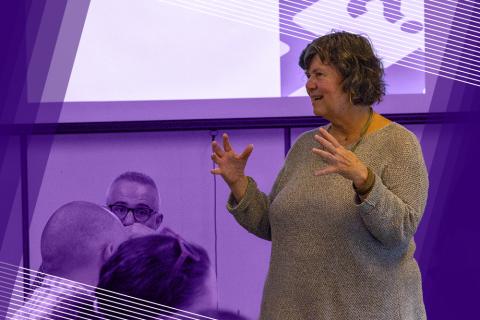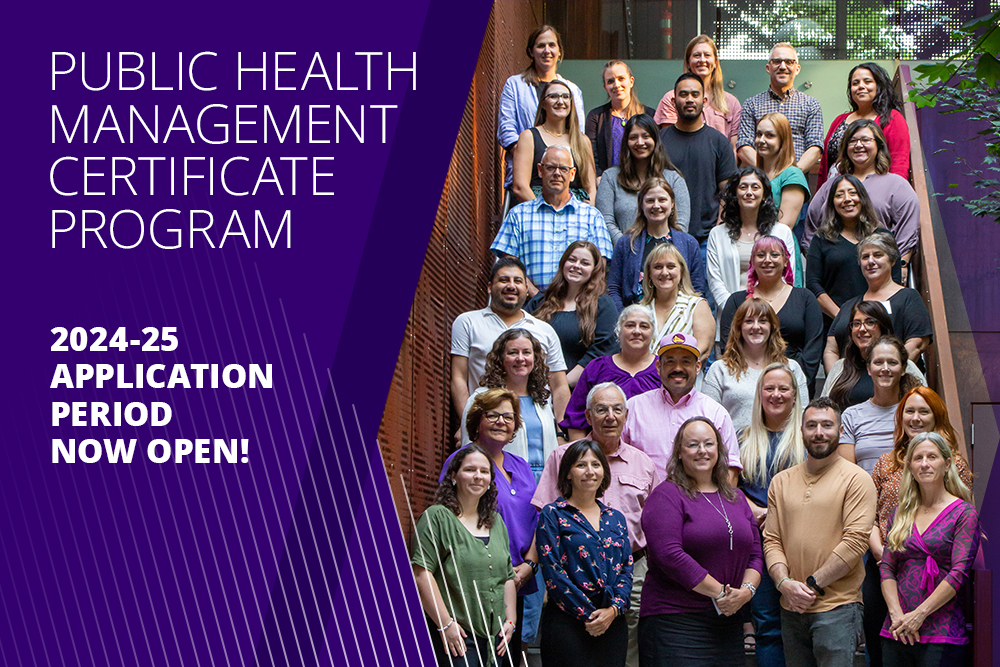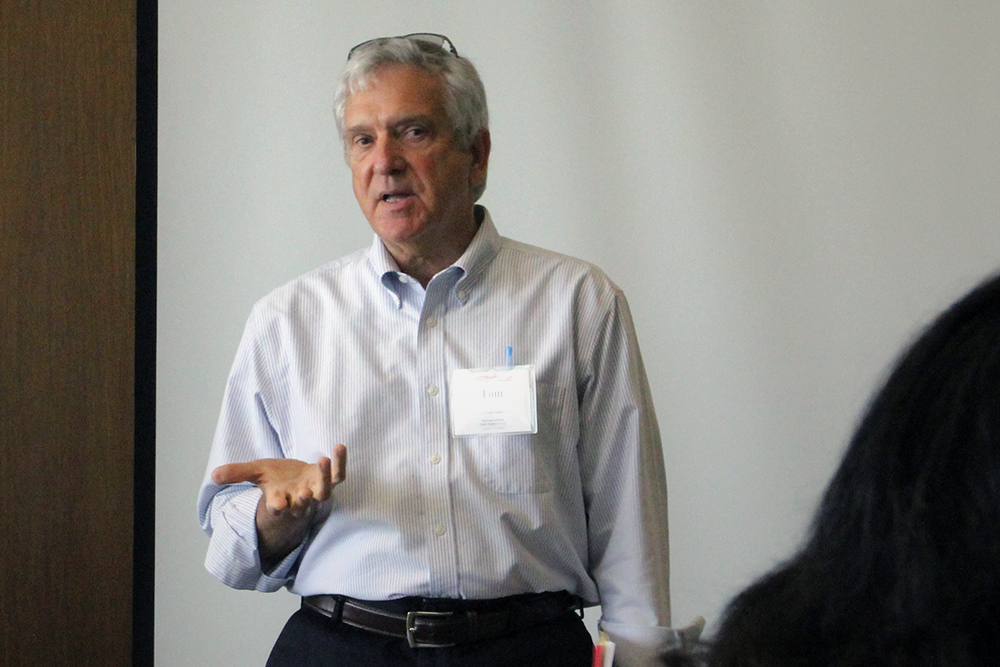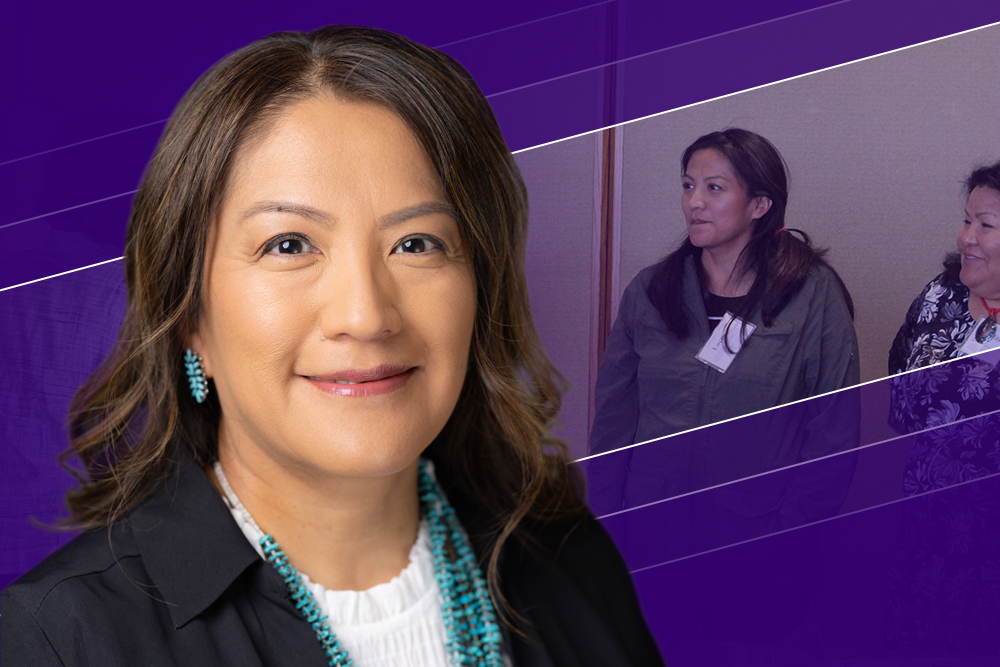
Mary Kay Chess during the 2023 onsite.
The NWCPHP’s Public Health Management Certificate (PHMC) is a year-long program that provides public health professionals with the core management skills needed to become successful leaders.
As we look ahead to the next PHMC cohort, we sat down with faculty instructor Mary Kay Chess to discuss the program.
“I’ve been teaching with PHMC since 2017,” Mary Kay explained. “Prior to that, much of my career was as an executive in healthcare systems, both rural and urban. About fifteen years ago I began teaching in academia, and I’ve brought my organizational background to teaching systems thinking.”
Mary Kay teaches Organizational Systems, which contains some of the first material scholars encounter in the PHMC program. The real focus of this block is encouraging scholars to step back and understand how they spend their time at work engaging with and resolving complex issues. "I think of this a bit like an archeological dig because we’re encouraging scholars to ask: What is the underlying structure of my organization? Who are my key resources? Who’s dependent on my work? What tools do I need to successfully navigate all this?”
“We end up really drilling down on communication and conflict as these are two of the biggest challenges most managers face at work,” Mary Kay said. “We give scholars a wide range of tools that are both practical and strategic, and they’re encouraged to take those tools beyond the classroom and implement them at their work. Afterward, we discuss what succeeded and what failed, and hopefully, there’s room to learn from both.”
“I don’t think there’s anything more powerful in learning than feedback,” Mary Kay noted. “In this program, feedback from both faculty and peers is crucial. This aspect helps inspire scholars with a renewed sense of hope while they’re also learning realistic tools to navigate a complex and often ambiguous world. And this doesn’t stop with graduation — many of our scholars maintain the same feedback networks as they move on in their careers.”
One of the key emphases of the program is health equity. “To me, DEI is such an essential and unique component of our program,” Mary Kay explained. “This isn’t an afterthought we tack on at the end of the classes. Instead, it’s embedded in every module and conversation we have, and I’ve seen how tremendously impactful these lessons can be.”
When asked about the type of scholars who excel in the PHMC program, Mary Kay turned thoughtful. “This program invites the curious and appeals to those who are willing to experiment. Scholars who excel in this program are open to ambiguity and complexity and are willing to learn more about their position within an organization.”
“If you’re the sort of person who looks at the world around you and wonders, ‘What if we tried something different? What would it be like if I implemented a new tool or a different approach? How can I change tactics to reach more people and achieve broader goals?’ If that’s how you think about things, you’re going to be transformed by this program, and you’ll come out as a more confident, competent, and compelling leader.”
To learn more about the program and apply for the 2024 cohort visit the PHMC training page.


